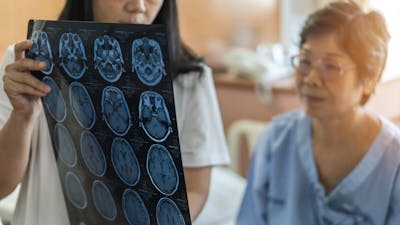The Wyss Brain Targeting Program is uniquely positioned to catalyze therapeutic collaborations enabling development of innovative brain-targeted drugs. Our goal is to establish a center for brain-targeted therapeutic innovation. We envision a future in which chronic neurodegenerative diseases are preventable or treatable, and it is normal to remain high brain functioning throughout life. The Brain Targeting Program is ready to address one of the key hurdles to achieving this goal. We are interested in connecting with leaders who share this vision, to discuss how we can accelerate progress together.
Diseases We Are Targeting:
- Neurodegenerative Diseases: Alzheimer’s disease, Parkinson’s disease, ALS
- Rare Brain Diseases: Metabolic diseases such as Pompe’s & Lafora’s disease
- Psychiatric and Neurological Disorders: Epilepsy, Depression, Bipolar disease, Schizophrenia, Anxiety
- Brain Cancers: Glioblastoma multiforme and brain metastases from other organs
Who we are and what makes us unique and different and enduring is our brains and our personalities. To have diseases that destroy that and take that away is so tragic – it’s important to me that cures are found. Ways to avoid this, ways to preserve the very crux of who we are as human beings is critical.
Extraordinary Gift Opportunities:
Brain Targeting Program Support Fund
Support pilot programs to develop brain targeting shuttles and experimental models for treating Alzheimer’s disease, Parkinson’s disease, ALS, and brain enzyme deficiency diseases.
Brain Targeting Scientist Support or Fellowship Program*
Support a Wyss Brain Targeting Program Scientist or Fellow to help advance brain-targeting shuttle discoveries and drugs from the lab into preclinical development and ultimately to patients.
Disease-Focused Pilot Program
Support preclinical testing of our brain shuttles for a specific brain disease application.
Disease-Focused Therapeutic Discovery
Support initiation of discovery and preclinical testing of brain-targeted therapeutic(s) for a specific brain disease.
Center for brain-targeted therapeutic innovation*
Establish a center for innovation in brain-targeted therapeutics at Harvard University, to support broad collaboration and partnering to develop a pipeline of brain-targeted therapies for diverse brain diseases.
*naming opportunity
Reimagining treatment for brain diseases to improve the lives of patients and their families
“To sit next to her, to hold her hand, but know that the person who was playing with me and spent so much time with me doesn’t know who I am and is not there is the most difficult part. It’s hard to see your grandmother doesn’t recognize you anymore.”
Ana Raquel Santa Maria has been inspired to Reimagine the World with better understanding, treatment, and prevention of brain diseases after seeing her grandparents suffer as they age, especially her grandma who has dementia. Read and listen to Ana tell her story.
